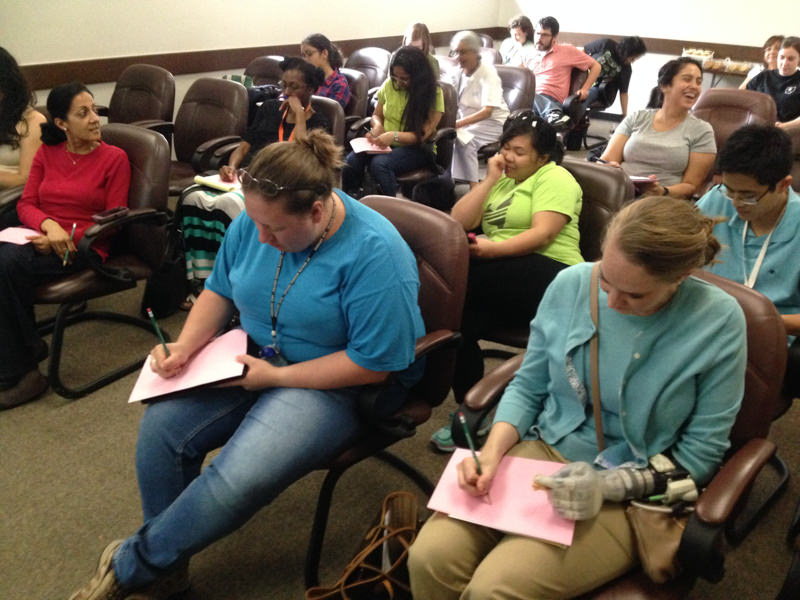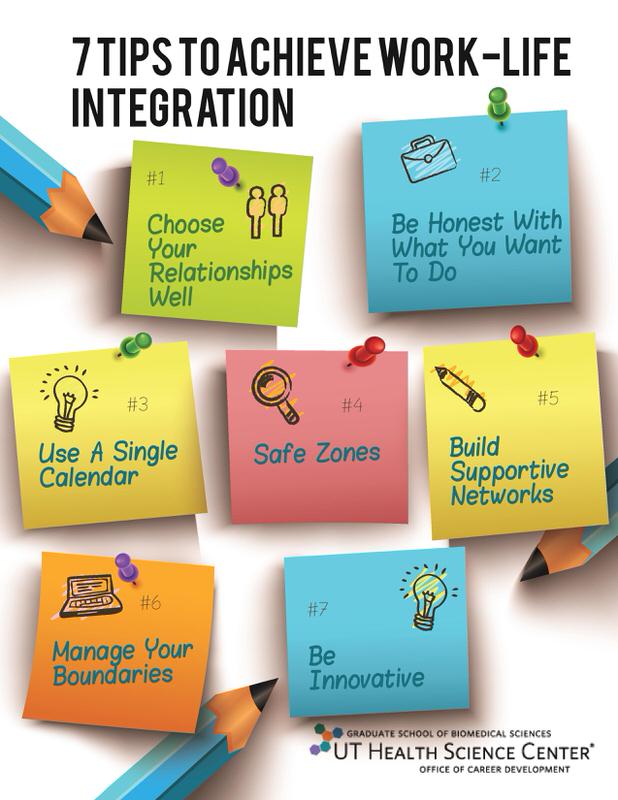Is there such a thing as work-life balance for scientists?

Dr. Nicquet Blake, associate dean of the Graduate School of Biomedical Sciences, gave a presentation sponsored by our SACNAS chapter this week.
In that presentation, she argued that the key is not to strive for “work-life balance” but rather to strive for work-life integration.
In her opening question to the audience of “what is work-life balance really?” postdoctoral fellow Tanoya Harris stated that work-life balance is “when you work and come home and live. When you can have a clear separation between work and your home life.”
To this, Dr. Blake told a story of her trip home to Jamaica after spending nearly 15 years away. She was in the airport at each layover on the almost 24 hour trip from San Antonio to Jamaica on her laptop.

It wasn’t until her family, husband and two sons, staged an intervention in the airport terminal that she realized that she too had a long way to go toward the goal of “integrating” her work into her life.
She told the audience that it was then that she realized she must “stop thinking about work-life balance. It does not exist. Rather she must work toward work-life integration!” So how do you do that you might wonder?
Dr. Blake began by putting away her laptop and only opening it while her family was asleep.
Here are Dr. Blake’s 7 tips to help you achieve work-life integration:
1. Choose Well– Dr. Blake cautioned that you must choose your relationships well. She spoke of the support that she has had from her husband and shared personal accounts of how he has stood by her and supported her throughout her career.
2. Be Real-
You must be real and honest with yourself about what you want to do with your life. As graduate and postdoc trainees, there are many career paths for us to choose and the sooner you can define what matters to you the better. “You know what you want to do, so go for it!” says Dr. Blake. You also need to determine what you really care about and think about how much time you spend on those things.
3. Use a Single Calendar– Dr. Blake says that one very valuable tip she has learned is to put both her work and family events onto one calendar. This indicates that you value your family events similarly to work and allows you to plan accordingly.
4. Safe Zones- You will find yourself very lonely if you do not develop safe zones now. These are places where you can escape from work and focus on the other things that matter to you. For Dr. Blake it is mealtime each day with her family. This is a no phone zone and a time where she can connect with what matters to her, her family.
5. Build Supportive Networks- Having friends and colleagues that you can count on are key to integration. You will need multiple networks and these will evolve as you evolve. The important thing is to get out of your bubble and make friends or to embrace and be thankful for those that you have.
6. Manage Your Boundaries- Rome was not built in one day—we are all leaders and if you lead you will be working harder then all the others around you. Therefore, we must know how to pace yourself.
7. Be Innovative- Scientists are so wise, we are wise; so use this wisdom to be innovative in how you integrate your own lives.
Dr. Blake ended her presentation with these words of wisdom, “Regardless of the level of integration you want to achieve you must ask how does this evolve as I evolve, as my career evolves?”

